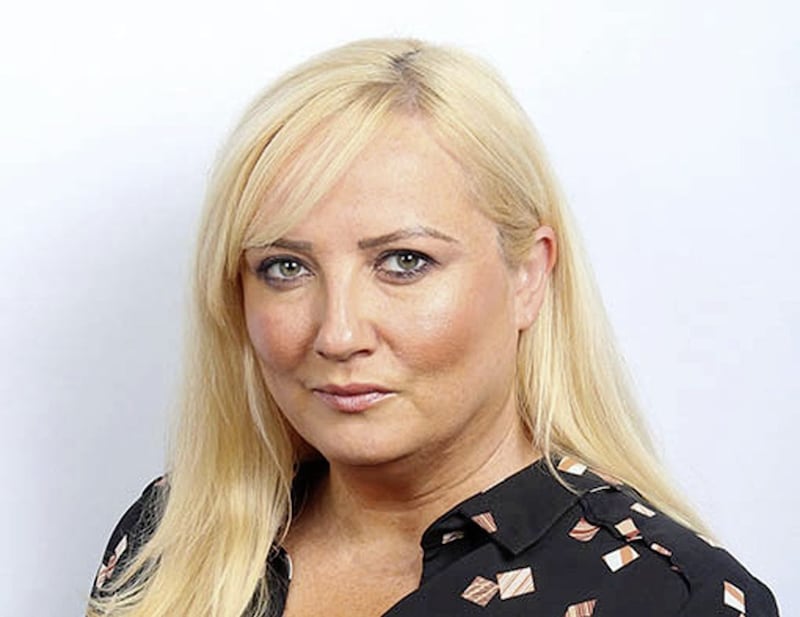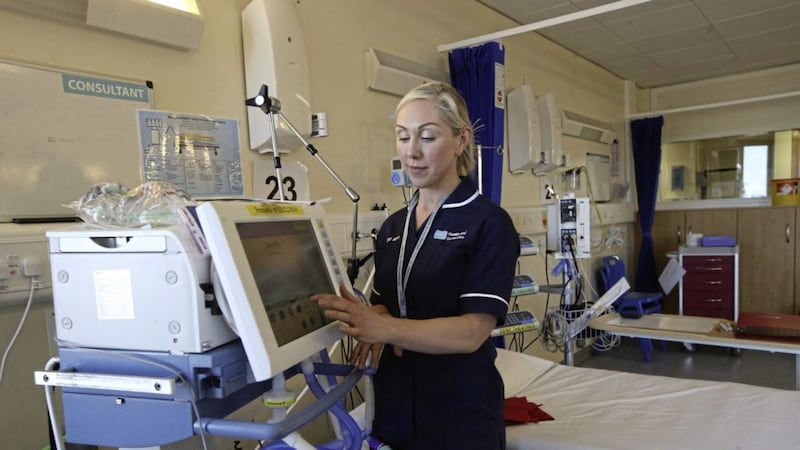I see we're now at the blaming sick people for getting sick stage of lockdown.
This week the north's healthcare system struggled to cope with an influx of patients, Covid and non-Covid related.
Healthcare staff are stretched already and then further still, with many frontline workers either testing positive or self isolating.
Winter bed shortages are an annual story here in Northern Ireland, where our health service has been underfunded and run down for generations.
Decreasing number of nurses being trained and then employed into the NHS, a generational 'money saving' policy is now coming home to roost.
If you cast your mind back, public outrage at hospital waiting lists was one of the main factors behind forcing the political parties back around the table and into the New Decade, New Approach deal.
That yearly crisis was always going to be greatly exacerbated by Covid-19, it didn't take a medical expert or team of highly paid government advisers to work that out.
And yet here we find ourselves, not even fully into the winter flu season, and already hospital staff are struggling to cope in almost impossible conditions.
'Stay at home, Save lives, Save the NHS', a slogan straight from the Dominic Cummings handbook, enraged me from day one as it was designed to make ordinary people think they were responsible for the dire state of our health service.

Then came the PSNI 'tout line' an online reporting service set up to inform on whether a person felt their neighbours were abiding by government legislation.
Rules, I might add, that the government themselves were not abiding by.
Creating a society where we blame each other on a pandemic was a clever tactic, while we are all watching each other we're not properly scrutinising government, either at Westminster or Stormont.
The complete waste of public money was highlighted by my colleague Brendan Hughes, who, using the Freedom of Information Act, was able to get a log of some of the complaints made to the PSNI via the online reporting portal.
The conclusion of that was that some of you have really awful neighbours.
Someone in Ballymena complained that 'a lady friend' was visiting their neighbour at least once a day, and 'elderly gent' in Downpatrick went out in his car several times a day according to one report, a woman in Antrim had 'physical contact with the family two year old' while standing on a doorstep talking to her mother.
This crisis should have brought society closer together, instead it has empowered busybodies and encouraged people to spy on their neighbour from behind the net curtains.
The current increase in Covid cases is not because someone went for walk more than once a day, or because they took in an elderly relative concerned for their mental and physical wellbeing.
There's still no official local study as to why cases are exponentially higher in some places than others, but we do now have a postcode tracker on the Department of Health dashboard.
That shows that as of this week BT11 postcode is now second only to Derry in the number of coronavirus infections per 100,000 standing at 787.5 recorded.
BT11 stretches from Upper Springfield Road to the the M1 motorway and runs from Suffolk Road to Milltown Cemetery and includes Andersonstown, where I am from and where most of my family still live.
A number of my siblings are key workers who did not have the luxury of a stay at home lockdown at any stage of this year.
The adjoining area of BT12 and BT17 which takes in Twinbrook, Hannahstown and Dunmurry are the next highest in the city at 704.4 and 673.8 respectively.
The official narrative is that people are having house parties and not following the rules, it's easier to blame the working class in the belief that they're an easy target with no means to defend themselves.
The reality being that the vast majority are concerned for themselves, their family members and the health service, that many work for and have helped keep afloat.
They are also more likely to be in low paid or front line employment, with a large youth population, many of whom rely on zero hour contracts.
If they get sick it is because most didn't have the option or luxury to stay at home. Sick people aren't to blame for being ill and they are also not to blame for there not being enough nurses to care for them.
Remember that the next time a politician steps in front of a camera.








